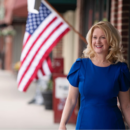- LOUIS, Mo. – Gov. Jay Nixon visited St. Louis today to ceremonially sign Senate Bill 334, which will allow Harris-Stowe State University to offer graduate degrees for the first time in its history. The bill also allows the university to offer additional undergraduate degrees beyond those with an emphasis on selected applied professional disciplines. Gov. Nixon was joined at the signing by University President Dr. Dwaun J. Warmack; the bill sponsor, state Sen. Jamilah Nasheed, of St. Louis; other legislators; and Harris-Stowe students, staff and faculty.
“Expanding access to a quality, affordable higher education has been one of my top priorities as Governor, and that’s why I’m pleased to sign this bill into law today,” Gov. Nixon said. “Allowing Harris-Stowe to offer graduate degrees and expand its undergraduate degree offerings will create greater opportunities for students in the St. Louis region for generations to come. I thank Sen. Nasheed, Rep. Steve Cookson and Rep. Kim Gardner for working in a bipartisan way to get this bill to my desk.”
Tracing its roots back to 1857, Harris-Stowe State University is St. Louis’ only historically black university. By current state law, Harris-Stowe could only offer “undergraduate degree programs with an emphasis on selected applied disciplines.” Senate Bill 334, which takes effect Aug. 28, changes that by authorizing Harris-Stowe to offer graduate degree programs, as well as expand its undergraduate degree offerings.
“We’ve been hoping for this favorable outcome. Attaining an advanced degree will now be within reach for a greater number of students, particularly those underserved students seeking an affordable graduate school opportunity,” Dr. Warmack said. “Over the next 10 years, Harris-Stowe will play a critical role in achieving Missouri’s Big Goal of ensuring that 60 percent of Missourians possess a college credential. We will now begin the process to offer graduate programs as soon as feasible.”
Gov. Nixon said the expansion of degrees was just one of the ways that Harris-Stowe was moving forward in serving its students. Several repair and renovation projects will soon be underway on campus, including projects at the Henry Givens Administration Building, the AT&T Library, the Emerson Performing Arts Center and the historic Vashon Center. The $2.2 million in projects are thanks to a strategic, fiscally responsible bond issuance that was called for by the Governor and passed this year by the General Assembly.
The ceremonial signing at Harris-Stowe also comes the day after Gov. Nixon announced that the maximum award amount for Access Missourischolarships will increase by more than 23 percent – from $1,500 to $1,850– for students attending participating 4-year institutions such as Harris-Stowe, and by nearly 30 percent – from $660 to $850– for students attending participating 2-year institutions in the current fiscal year, FY2016.
Access Missouri is a needs-based scholarship program to help students of low-income families attend a participating Missouri college or university, if the student meets the Missouri Department of Higher Education’s eligibility criteria. Approximately 50,000 students receive an Access Missouri scholarship annually.
This increase in scholarship amounts is the result of the state’s fiscally responsible budget management and an improving economy, which allowed the Governor to release funding for Access Missouri in the 2015 fiscal year. Those funds will be used in the upcoming school year.
Gov. Nixon has made the quality and affordability of higher education in Missouri a top priority of his administration. Over the past six years, Missouri has led the nation in holding down tuition increases at its public universities. The College Board’s 2013 Trends in College Pricing report shows that tuition and fees at Missouri’s public four-year institutions increased just 5 percent since 2008, lower than in any other state in the nation.









